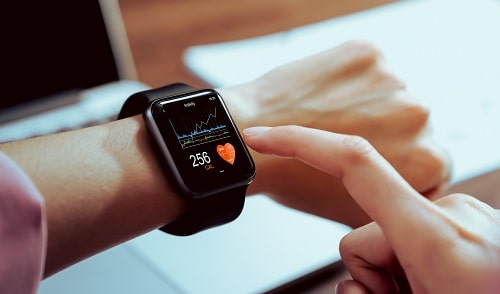Medical device contract manufacturing essentially refers to when a medical device company contracts another company to manufacture medical devices on their behalf. It gives medical device companies the ability to increase production volume, decrease lead time, and scale up or down as needed. Contract manufacturing in the medical field allows medical device OEMs to focus more on sales and marketing activities, and less on manufacturing-related processes.
Nowadays, medical technology is advancing at breakneck speeds, with new devices being invented one after another. At no other time in history has the world seen such rapid advancement in the field of medicine and improved healthcare. As these technologies mature, they can be adapted to assist with even more complex medical situations.
Moreover, the technology used every day is getting smaller and more efficient than ever before. As the number of people who need medical devices grows, so does the demand for these products.
Here are some trends in medical device contract manufacturing that will help contribute more to the medical field.
-
Strategic Supply Chain Management
Advanced medical device companies work closely with suppliers such as medical device contract manufacturing company RBC, implementing the best practices in the industry to bring high-quality products to market.
Manufacturers must balance cost-efficiency and reliability with advanced technology as they look for partners with a good track record. Many of these companies will continue to outsource part of their production process abroad, giving them access to a larger talent pool and lower costs.
Thus, companies are increasingly looking at the device supply chain from a strategic point of view, where they can leverage their technology advantage.
-
Emergence Of Minimally Invasive Technology
Another trend to look forward to is the minimally invasive techniques that are becoming more common in medicine worldwide, leading to a boom in the minimally invasive technology market.
There are several benefits to using this type of technology. Devices can be introduced without surgically opening the body, allowing for faster healing times and less scarring.
This trend has also extended into the medical device industry as a whole, where more and more companies offer products that can be used without having to go through traditional procedures.
In the years to come, companies will develop new technologies in this space to reduce costs and increase efficiency on a global scale.
-
Advancement Of Healthcare Analytics
Medical device companies are using data from healthcare providers to help them make better decisions about their products and services. Customer feedback, combined with information on the medical environment, allows companies to innovate and adapt quickly to changing needs. This can result in smaller companies developing innovative technologies that meet a specific requirement for a limited subset of healthcare providers.
Companies will continue to focus on using data to improve their decision-making process. Analytics will also be used to analyze internal needs, identify opportunities for improvement, and expand into new markets where they can find success.
There is a growing need for medical technology both domestically and abroad. As the world continues to grow, so do the needs of people in healthcare. So, companies need to provide quality products and services while also staying up-to-date with market changes to remain successful.
-
Development Of Wearable Devices
The growth of wearable technology is already being witnessed by the world nowadays. As time goes on, these products will be used for more than just fitness tracking—they could become an essential part of people’s lives.
There is a variety of uses for wearable technology in healthcare. Doctors can use it to monitor their patients without constantly checking in, and patients can use it at home for self-monitoring.
Companies will see a growing demand for smaller devices that don’t require large batteries or outlets in the years to come. They’re working on ways to make their products easier to use and more portable.
-
Medical Innovation
There is a shifting mindset when it comes to innovation in healthcare. Traditionally, doctors would spend their time figuring out the best way to treat a patient’s ailment, which often meant prescribing one-size-fits-all treatments. Changing this mindset requires a shift in understanding the healthcare system and how different organizations should work together to improve patient care.
The push for more innovative thinking has led to an increase in medical crowdsourcing initiatives, where specialists worldwide come together over the Internet to discuss solutions based on their own experiences.
The increasing popularity of telemedicine is another side effect of the movement toward more innovative thinking within the medical system. Telemedicine allows doctors to examine patients remotely, which eliminates unnecessary travel and helps improve access to healthcare services.
-
Expansion Of Outsourcing
The growing interest in minimally invasive devices has prompted companies to look abroad for highly skilled labor, which gives them direct access to a larger talent pool.
Medical device outsourcing provides cost-effective solutions that increase operational efficiency while giving more minor manufacturers access to products they may not afford or develop on their own.
In the years to come, the world will see a growing demand for medical device outsourcing as companies look for ways to improve productivity and cut costs without sacrificing quality. These manufacturers will specialize in a specific type of technology or device to serve several different customers in many cases.
Conclusion
These are just some of the trends expected to impact the medical device contract manufacturing industry over the next few years. As long as there is a growing need for these products, companies will need to stay on top of current trends and adapt their business strategies accordingly.
Hiring an experienced medical device outsourcing company can help businesses keep up with any changes they might face in the coming years. Most notably, these companies can help enterprises better understand the foreign market they’re selling to. This will make it easier for businesses to launch new products overseas, streamline their operations, and protect their interests moving forward.

















